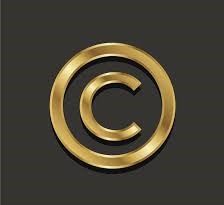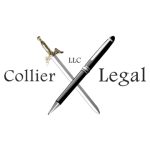An Overview of Copyright Law

Navigation
What Copyrights Protect
Copyrights protect creative expressions on tangible mediums. Creative expressions include songs, lyrics, poems, literature, sound recordings, dramatic works, etc. These creative works must be put onto a tangible medium for copyright protection to apply.
Copyright Registration
A person owns their creative work immediately upon expressing that work on a tangible medium. You don’t have to file for registration of a copyright to own your work. However, you do have to file for registration to take legal action against copyright infringers. This can be done at the US Copyright Office.
Copyright Costs & Fees
The registration fee for a copyright with a single author starts at $45.
If you want the assistance of a Copyright Attorney, the general cost of attorney’s fees for registration filing is $250-$500.
These fees reflect the filing of a single copyright subject matter. Additional fees will apply to bulk applications.
Copyright Licensing
The right to use copyrighted material can be licensed to others. This is done by a licensing agreement that often addresses basic terms, such as:
- whether the license is exclusive or non-exclusive
- any time limitations for using the material
- and geographic locations to use the material
- restrictions for use in commerce or sharing with third parties
- royalties
The US Copyright Office provides information on certain mandatory licensing issues, including issues relating to rebroadcasting television programs.
Most professionals that produce copyrighted material partner with a copyright licensing organization. These organizations receive a license from the creator and sub-license the material to third parties. The licensing organization will then share the royalties with the creator. The University System of Georgia has a great resource to identify licensing organizations.
Copyright Infringement & Fair Use
Most copyright infringement issues are determined based on whether the use was fair use. The law permits limited use of another’s copyrighted material for certain use, such as scholarly use, criticism, news reporting, and commentary. There is no blanket rule to determine what constitutes fair use. However, the Copyright Office does offer a Fair Use Index. This index is a compilation of copyright cases that can be searched by medium, such as music or writing, to view specific examples of fair use in your circumstance.
Conclusion
The practice of copyright law is primarily focused on licensing and use of creative work. Much of copyright law is embedded in licensing agreements and federal case law. This means any determination of your rights needs to be researched for specificity. Contact a copyright attorney today for assistance.

About
Attorney Collier started his own law firm straight out of law school and has been practicing law in Ohio for 5+ years. During that time, Joe focused on business law and litigation, gaining some exposure to intellectual property law. While running his firm in 2021, Joe decided to go back to school and get his patent license. Since then, Attorney Collier has been focusing on protecting innovators and entrepreneurs through his expertise in intellectual property and business law.
